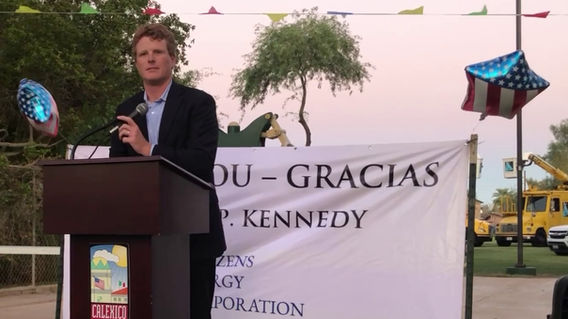Government Was ‘Napping’ On Oil Cost, Energy Chief Says
- The New York Times
- By Carey Goldberg

BOSTON — Energy Secretary Bill Richardson stood penitent here today before a crowd of regional politicians, truckers, industry representatives and consumers at the first New England Heating Oil Summit, and confessed, “We were caught napping.”
“It’s obvious the federal government was not prepared,” Mr. Richardson said, for the recent jumps in oil prices that have brought cries of distress from residents of the Northeast and elsewhere who have found their home fuel bills doubling this winter, to as much as $2 a gallon. “We got complacent.”
No one among the scores of people who nearly filled a Faneuil Hall meeting room disputed a need for better monitoring to anticipate rising prices. But the three-hour meeting found no easy unanimity on how to respond to such spikes.
As Governor Paul Cellucci of Massachusetts put it, “What is the solution to make sure we’re not back here next year with the same problem?” That problem, as speakers noted, is one of supply (cuts in OPEC oil production) and demand (a surge that came with this winter’s cold snaps).
Former Representative Joseph P. Kennedy II argued that the answer lay in ensuring the supply, by requiring wholesalers to maintain some minimum level of oil in storage.
“This is a very soluble, easy problem,” Mr. Kenney said. “It takes political will.”
Senator Edward M. Kennedy, his uncle, is preparing a bill that would set such minimum supply levels of heating oil for the Northeast, the senator’s office said.
Mr. Richardson said that he would consider Mr. Kennedy’s proposal and that he was also willing to examine a proposal that the government itself create an oil reserve for the region. Representative Bernard Sanders, independent of Vermont, is helping push a bill in Congress to create a two-million-barrel home heating oil reserve in existing structures in New York Harbor, and to store more with the government’s Strategic Petroleum Reserve, an emergency supply of crude oil that lies in he underground salt caverns along the gulf coastline.
Mr. Sanders and virtually every other federal officeholder form the Northeast have also been pressing for more immediate help to besieged fuel consumers. Mr. Sanders, who previously called the Clinton administration’s response to the soaring priced “underwhelming,” applauded the president’s announcement today that the government would provide new heating oil aid. But, he added, Washington should also be releasing oil from the strategic reserve.
Secretary Richardson said that among other steps, he would look for a way to provide financial relief to truckers and others who have been hurt by the jump in prices for diesel, a product almost identical to home heating oil.
They need that relief, those people say. Al Bryant, one of at least two dozen truckers who attended the meeting, said that his fuel costs had risen 119 percent in the last five months and that his profit “is nil right now.” He and other truckers suggested that they be given a temporary respite from their taxes of 47 cents a gallon.
Mr. Bryant was among those who puzzled over the most perplexing question raised at the meeting: Were the price spikes solely the workings of the market, or was some manipulation afoot? Several speakers said there had been moments when prices seemed to be suspiciously inflated beyond reasonable markups. Senator John Kerry, the Massachusetts Democrat who had called for the conference, said he was not satisfied that the recent price increases were “a pure reflection of market forces.”
Like Mr. Sanders, Mr. Kerry is pushing for an oil reserve bill, because “we can’t allow a kind of speculation process to destroy people’s capacity just to make ends meet and live.”
Among those at the conference were representatives of oil wholesalers, oil retailers, consumer advocacy groups, the New York Mercantile Exchange, Morgan Stanley Dean Witter, the elderly and the natural gas industry. One frequently repeated theme was the kind of warning that came form Harris B. McDowell, a state senator from Delaware.
“There truly is an energy crisis that never went away,” Mr. McDowell said. “In the 1970’s and early 1980’s, that wolf ate a few very fat piggies, and has been very happy for a while. But it is still with us, and I think this crisis proves it.”


